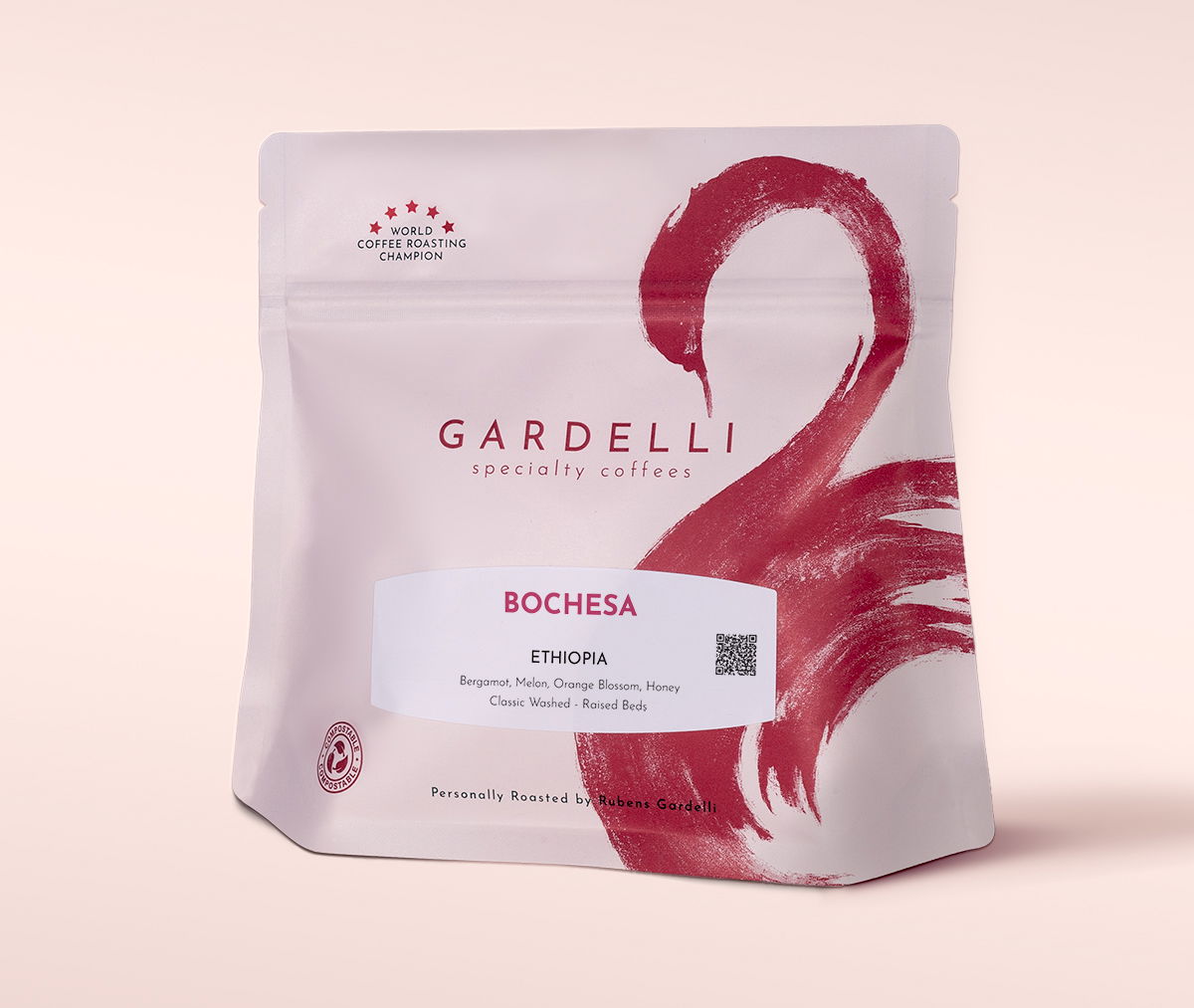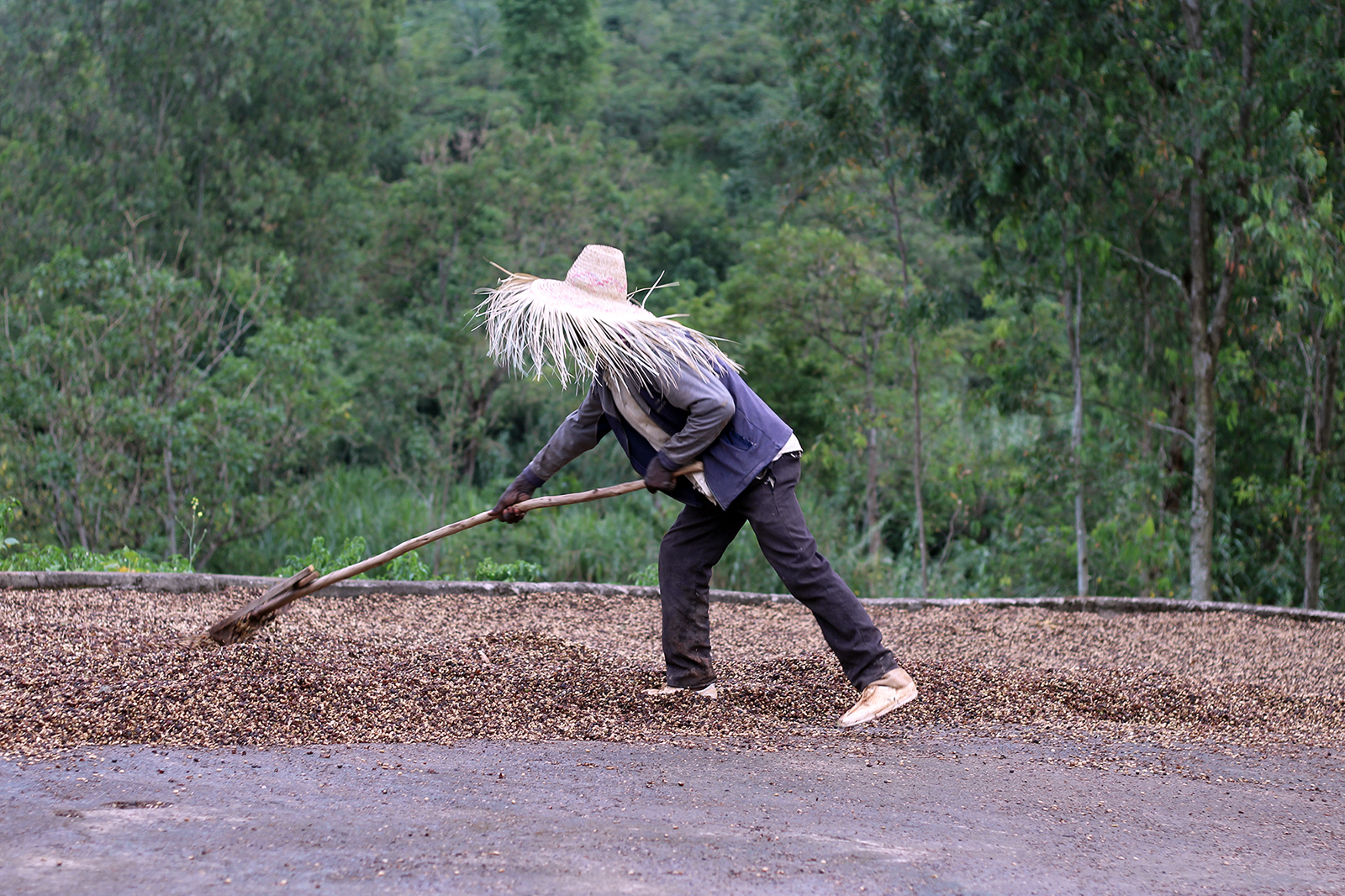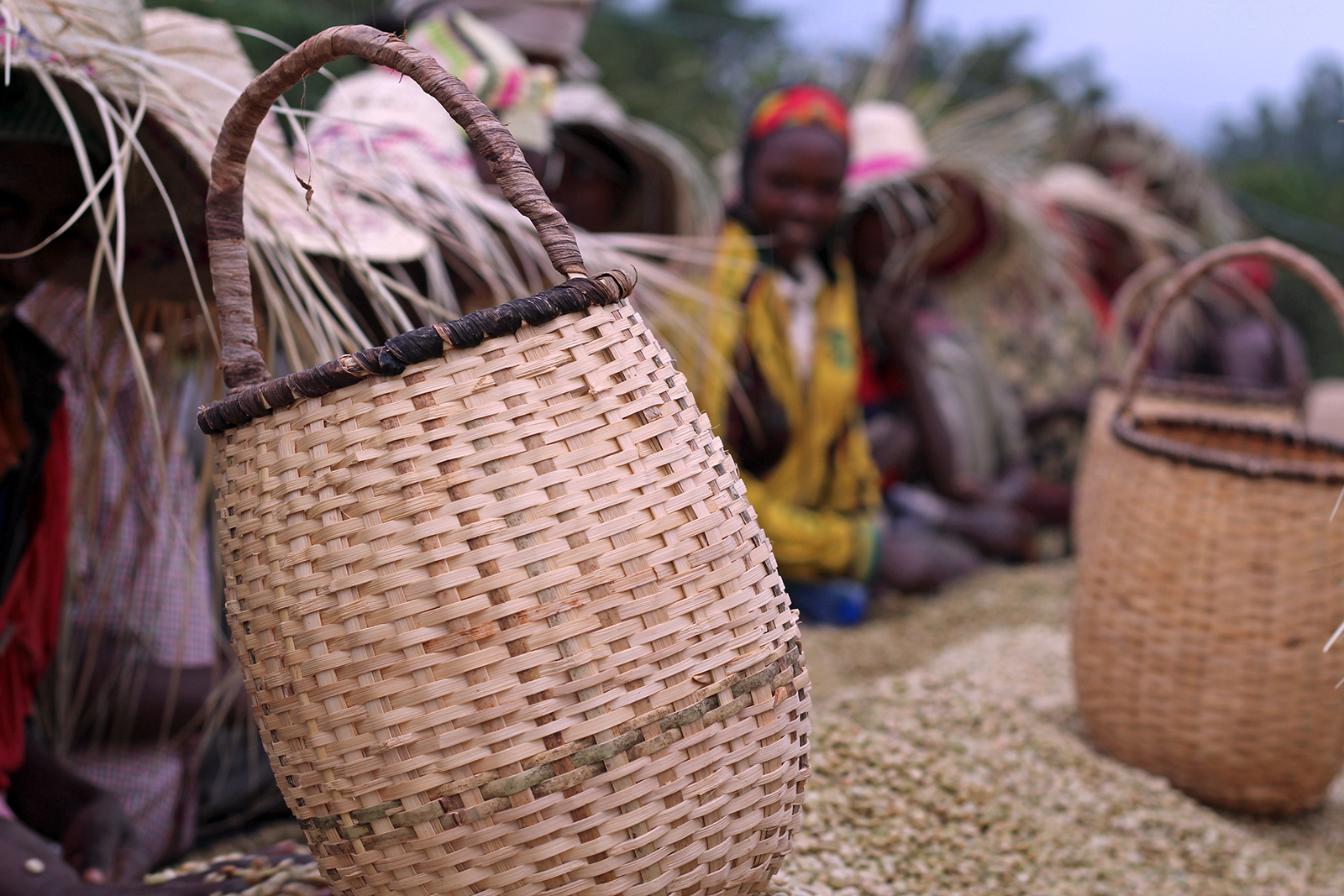









Ethiopia
Cup Notes: Bergamot, Melon, Orange Blossom, Honey
Our new Ethiopian release from Sidama. Floral and sweet, with the clarity and complexity of its terroir. A soft, fresh cup with medium acidity and a delicate fruit-forward bouquet.
Suggested for espresso and filter
when we roast
We freshly roast to order all coffees on Monday, Wednesday and Friday (excluding national holidays), and ship the same day! Cut-off time is 11:59pm (UTC+1) of the day before the roast day. *We only ship whole beans*
Bochesa Washing Station is located in the highlands of Arbegona, Sidama, sitting between 2000 and 2100 masl.
Established in 2022, the station spans 1.5 hectares and continues to grow, with plans for solar tunnels, underground water access, and improved drying infrastructure. Bochesa works with 823 local farmers cultivating classic Ethiopian varieties such as 74110, 74112, 7440, and 7454. Each year, between 500 and 600 tons of cherry are processed on site by a team of six permanent staff, four seasonal coordinators, and over 200 temporary workers during harvest.
Alongside quality, Bochesa invests in community: distributing seedlings, offering financial support, and rewarding farmers with premium payments based on cherry quality and delivery.

The varieties present in this lot—74110, 74112, and 7454—are improved Ethiopian selections developed by the Jimma Agricultural Research Centre (JARC) in the 1970s.
Originating from wild coffee trees in the forests of Metu, Illubabor, these cultivars were chosen for their natural resistance to coffee berry disease and leaf rust, as well as their high yield potential. 74110 and 74112, in particular, are compact and resilient plants that thrive at high altitudes and are now widely grown across regions like Sidama and Yirgacheffe.
While each variety was bred for agronomic performance, they have also earned recognition in the specialty world for their vibrant acidity, floral character, and juicy, clean cup profiles—embodying the unique expression of Ethiopia’s terroir through thoughtful agricultural selection.

At Bochesa, processing is thoughtful and precise. Cherries are carefully cleaned and sorted before fermentation in clean water tanks, where temperature and time are closely monitored.
After 12–16 hours, the coffee is washed again and moved to raised beds, where it dries slowly over 10 to 14 days. The parchment is then rested for around 20 days before evaluation and export. Throughout, Bochesa applies efficient water use practices and treats all wastewater before disposal—an approach that balances quality and environmental care.
The washed process here brings clarity, structure, and a refined expression of the terroir.
